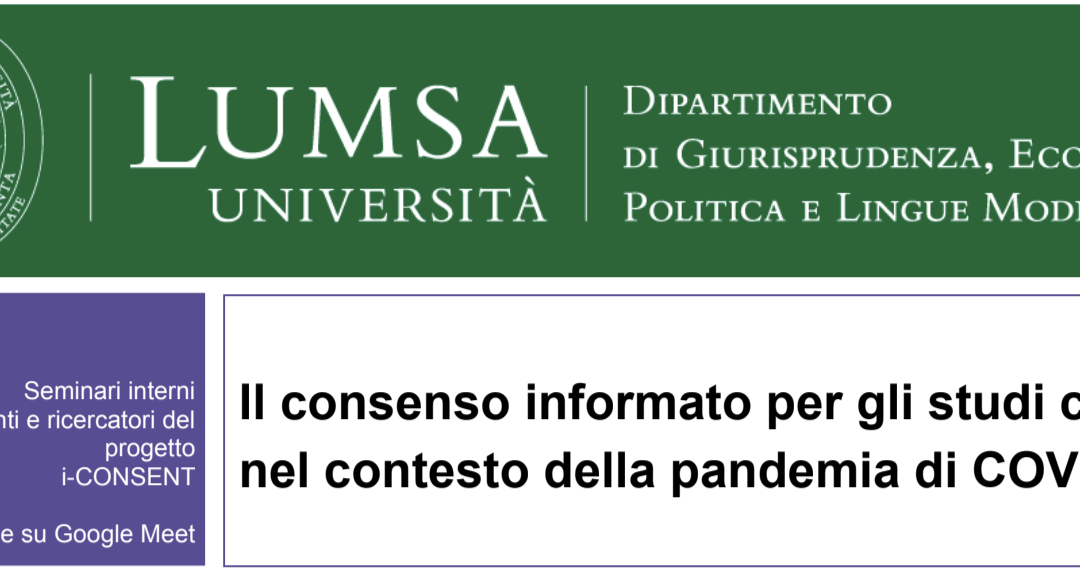LUMSA University organised Monday, March 22st 2021 the last meeting of its series of encounters to discuss informed consent in pandemic situations. This one, focused on ethical and legal requirements for biomedical research involving health data in the context of COVID-19 pandemic: implications for informed consent. Prof. F. Montalvo Jaaskelainen, who had already participated in LUMSA’s meeting, was the experted invited.
He is professor of Constitutional Law and Biolaw, Director of the Center for Legal Innovation, CID-ICADE, Chair of the Spanish Bioethics Committee, Member of the International Bioethics Committee IBC-UNESCO and Member of EAB Harmony and Pionner.
Is my health data “only” mine?
Montalvo began his talk with the crucial question “can we convincingly affirm that my health data is “only” mine?”. The answer is “no”, he stated. Big Data represent a major challenge to the legal system. Nonetheless, personal information goes hand in hand with these risks, even more so in areas such as health care, where highly sensitive data are at stake. Yet, Big Data will potentially multiply these risks: they are not only limited to the right to privacy, but also other rights and interests, such as access to employment, credit or insurance
Nonetheless, the opportunities offered by the extensive use of health data become even more relevant in health care systems characterized by both essentially public management and care provision schemes (the Beveridge formula) and the recent process of digitalization of documents and clinical records, that helped introduce millions of data in a single or, at least, in easily comparable databases. Consequently, we are not exclusively referring to data extracted from research projects on humans or clinical trials, but to the secondary use of health data, which is more significant in terms of numbers and, possibly, value.
The right not to share
Montalvo stressed that those who invoke their right not to share their data in any circumstance, even when someone else’s health is at stake, may be blurring the line between individual autonomy and narcissism. A position that ignores the common good and prioritizes not only autonomy but even selfishness and narcissism does not seem acceptable from an ethical-legal perspective.
According to Montalvo, we cannot apply the ethical-legal principles and values developed for Big Data-driven research to traditional research projects on humans, because the rights involved in research projects not focused on individuals, but on their data differ. It is no longer a matter of affecting an individual’s integrity, but rather intruding in his or her private sphere.
Informed consent
Obviously, this cannot mean prioritizing collective interest at the expense of individual interest, but rather seeking a balanced formula to integrate the two. This formula can be worked out when we safeguard the rights of the individuals involved by adapting one of the two requirements that the new legal model of data protection seeks to accomplish (anonymization through the new mechanism of pseudonymisation).
What is relevant in this new model is not so much an individual’s prior consent to the new purpose for which data are intended or strict data anonymization. In fact, what matters is the legitimate origin of the data, the great importance of their secondary use for community health and the adoption of sufficient measures to prevent non-authorised third parties from gaining access to an individual’s identity through the data, without necessarily demanding any strict anonymization.
In this new framework of great opportunities to fight against diseases and improve people’s health, it is important to promote new paradigms that do not forget that the COVID-19 context is very different from the one existing a few years ago and that the great advantages that massive data processing can offer must transcend a vision exclusively based on individual interest to the detriment of the common good. A balance between both positions seems to show itself, as it happens in many other areas, as true virtue.
